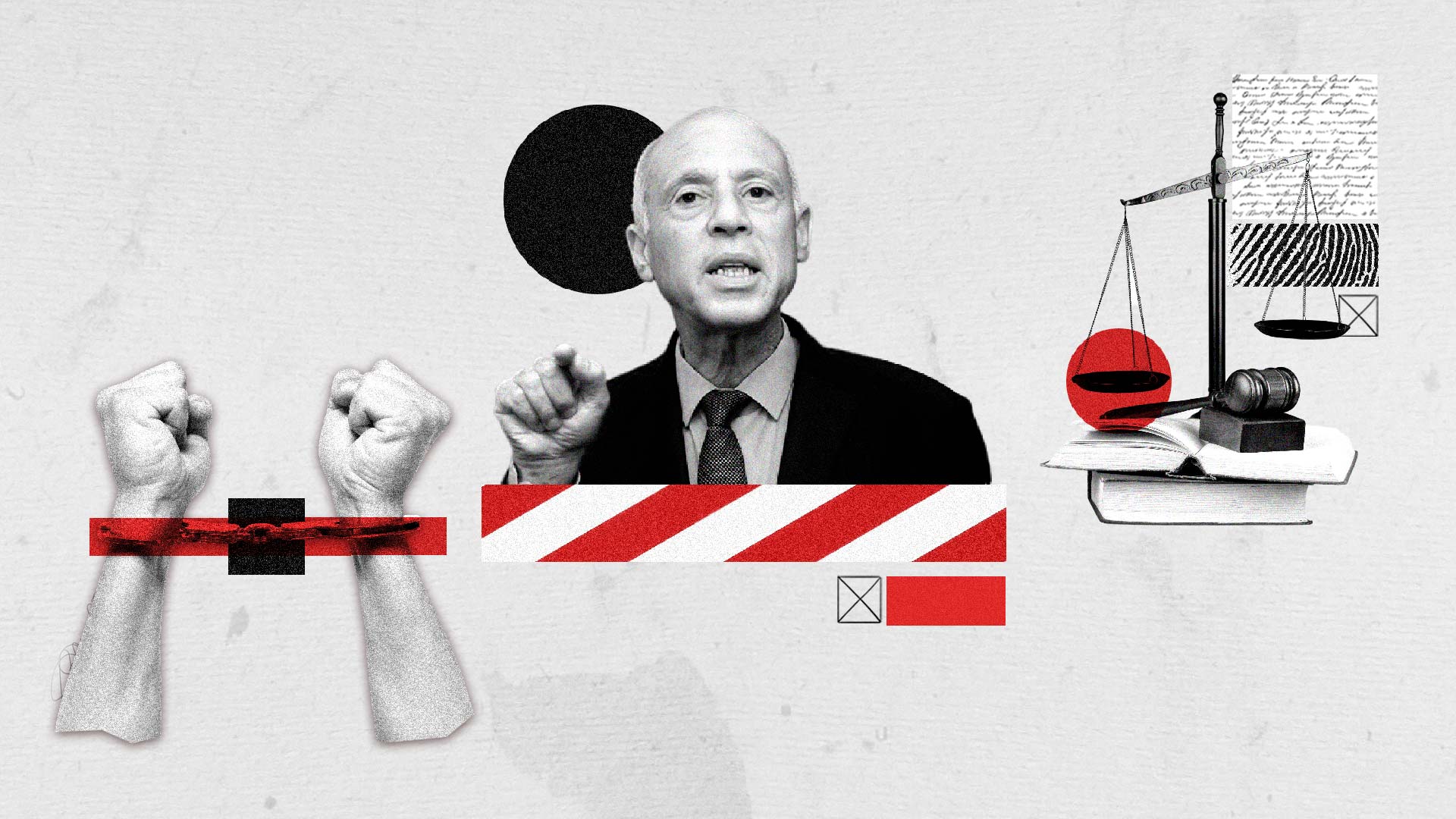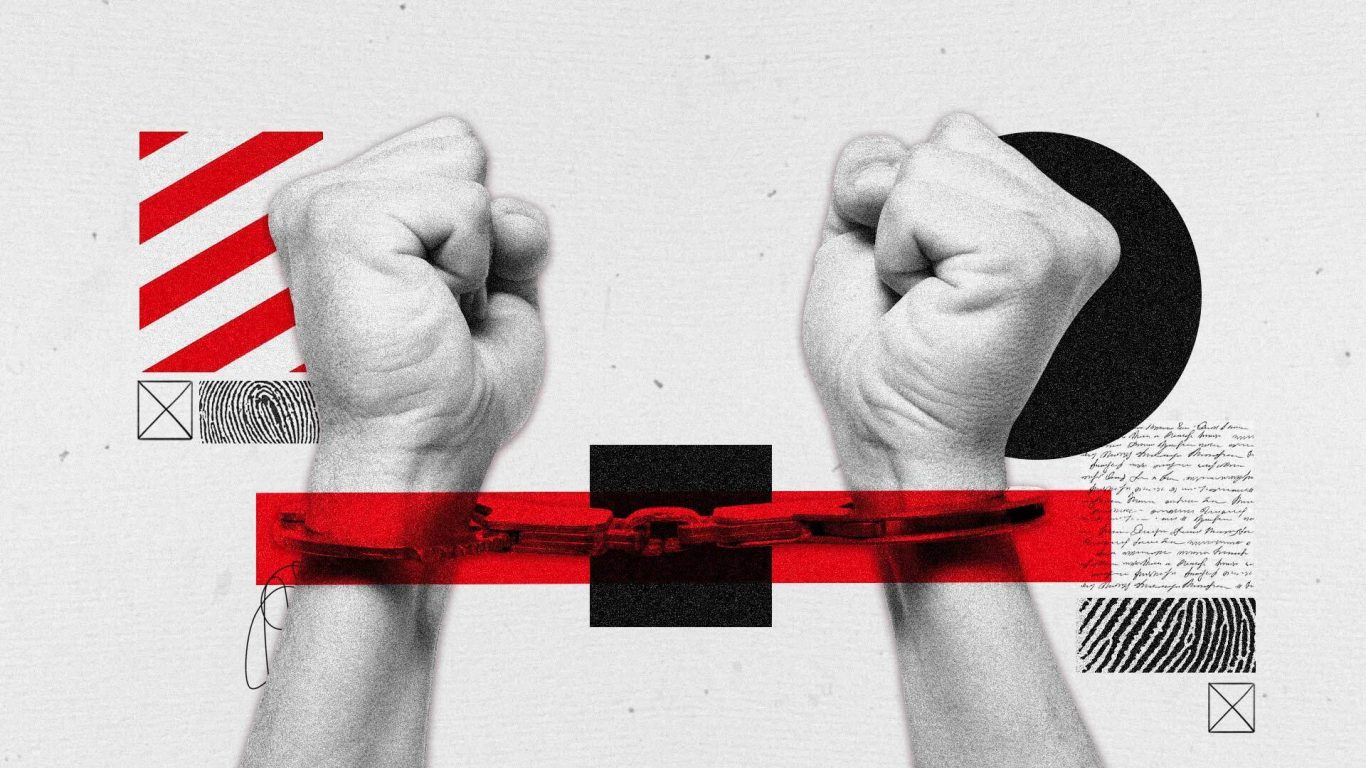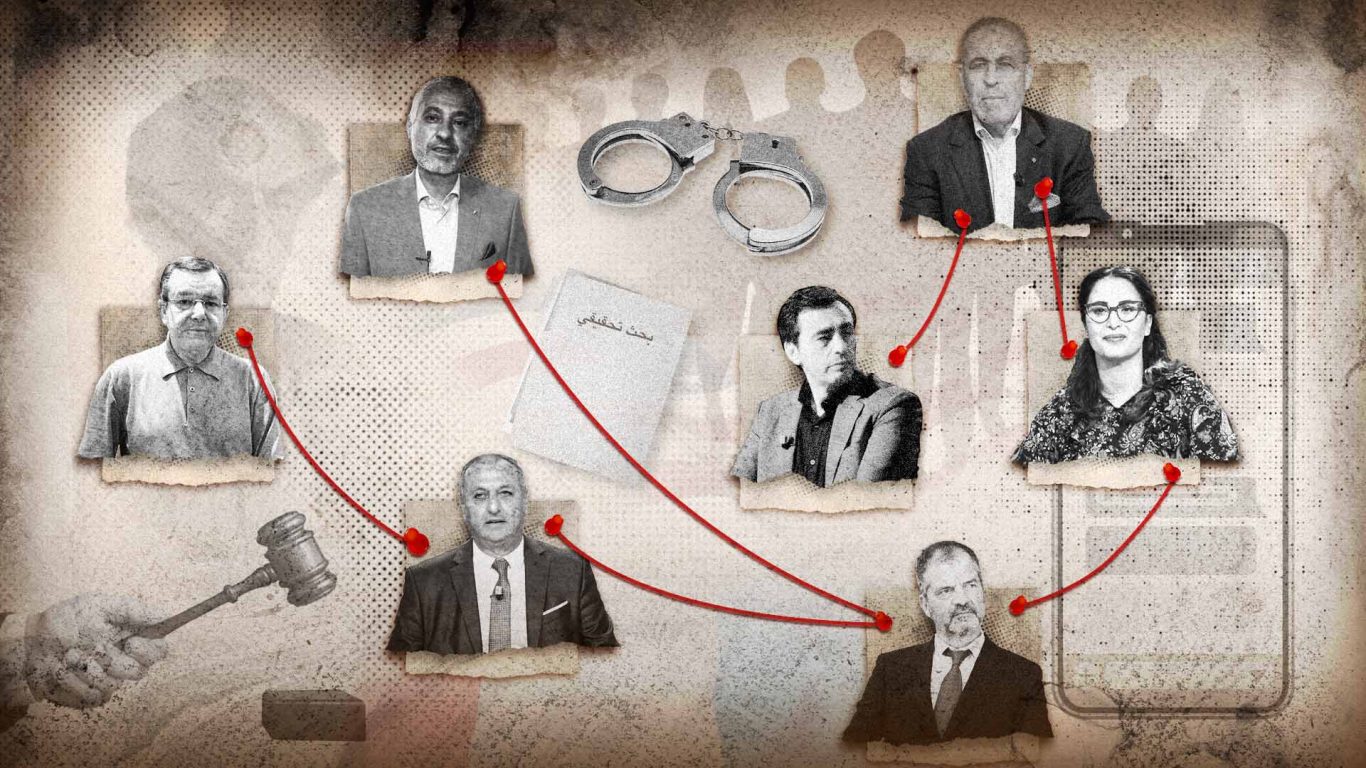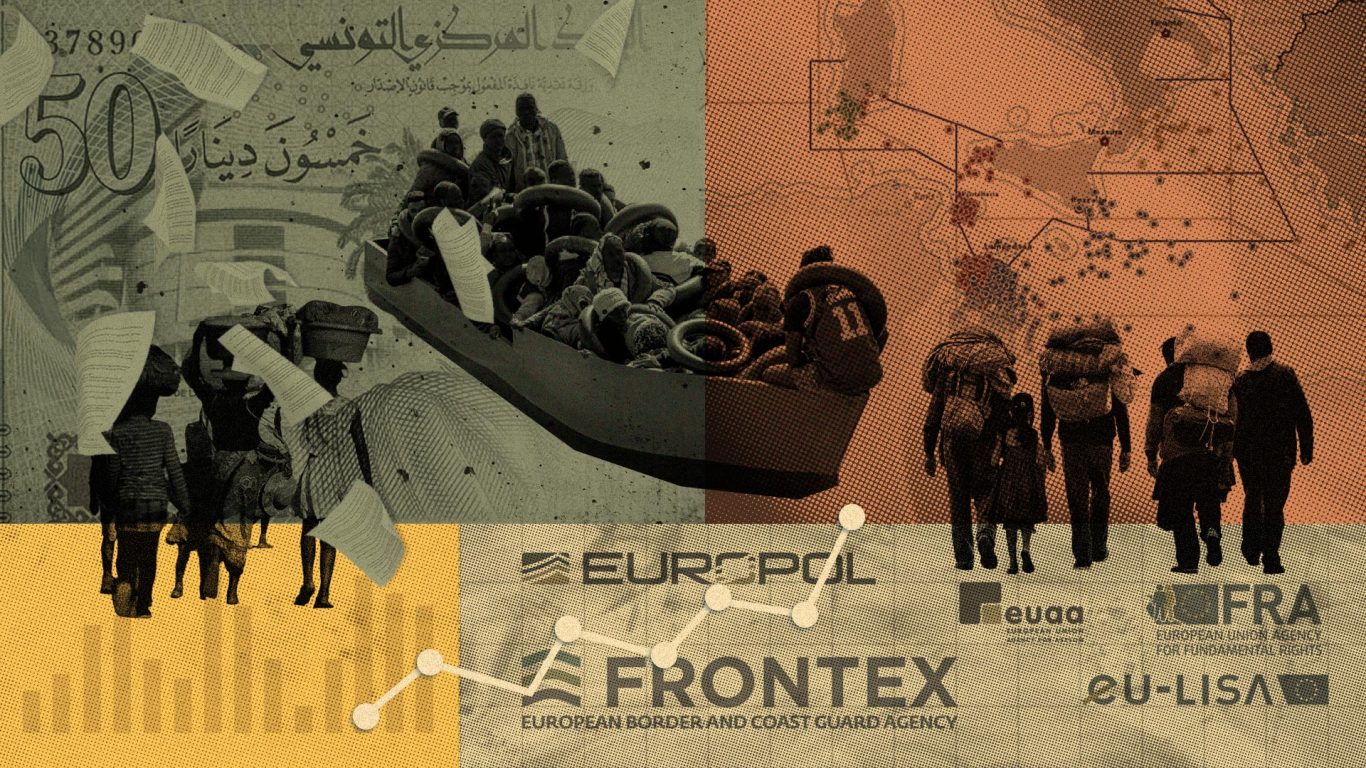Tunis, April 2025 — In a new report titled “All Conspirators: How Tunisia Uses Arbitrary Detention to Crush Dissent”, Human Rights Watch (HRW) condemns an unprecedented wave of political repression in Tunisia. Since July 25, 2021—the date of President Kaïs Saïed’s power grab—arbitrary detention has, according to HRW, become a central tool of the executive branch to silence dissent.
Find the full report in english here.
A Policy of Suppression
After suspending Parliament, dissolving the High Judicial Council, and seizing control of the public prosecutor’s office, Tunisia’s judiciary has been systematically stripped of its safeguards. HRW documents a regime criminalizing free speech, political activism, and even independent journalism.
The report details 28 cases of arbitrary detention, with 17 individuals still held and at least 14 facing the death penalty—often on vague or unfounded charges like “conspiracy against state security” or “attempting to change the regime’s nature.”
Some detainees have been held beyond the legal 14-month pretrial limit, while 20 civilians were tried in military courts, violating international law.
On the same subject
A Judiciary Under Control
The report also highlights the collapse of judicial independence, marked by:
- The 2022 dissolution of the High Judicial Council;
- The firing of 57 judges by presidential decree;
- Prosecutions of lawyers and magistrates for critical views or rulings.
The executive branch “ has weaponized the judiciary to target opponents,” HRW states.
Vague Charges, Political Trials
In the so-called “February 2023 Plot,” opposition figures like Jaouhar Ben Mbarek, Chaima Issa, and Ghazi Chaouachi face charges for mere political discussions or diplomatic meetings. Cases rely on anonymous testimonies without concrete evidence.
On the same subject
Authorities exploit broad penal code articles, Tunisia’s 2015 anti-terrorism law, and the controversial Decree-Law 54 (enacted September 2022), which criminalizes “false news”—often targeting critics of officials. Journalists and online activists have received up to 10-year sentences under these laws.
Alarming Detention Conditions
HRW documents inhumane and degrading conditions, including:
- Denial of medical care to sick detainees;
- 24-hour artifical lighting in certain cells;
- Round-the-clock video surveillance;
- Strip searches at Manouba Women's Prison
- Verbal and physical abuse ignored by prison authorities
Who is targeted?
The wave of repression has targeted political opponents, journalists—including Mohamed Boughalleb, detained over his investigative work—and human rights defenders such as Sihem Bensedrine, who faced prosecution for her work with the Truth and Dignity Commission (IVD). Both Boughalleb and Bensedrine were released by the time the report was published. Lawyers have also been targeted. Some individuals face multiple successive charges, a tactic that allows authorities to extend their detention without trial.
International Complicity
Human Rights Watch also highlights the responsibility of Tunisia’s foreign partners, particularly the European Union. Since the signing of a migration agreement with President Kaïs Saïed in July 2023, the EU has largely muted its response to human rights violations in order to maintain security cooperation. None of the major donors have officially condemned these practices, despite repeated warnings from both national and international organizations.
“Migration cooperation bought their silence,” HRW concludes.
On the same subject
HRW’s Demands:
- Immediate release of arbitrarily detained individuals;
- Judicial reforms to ensure independence;
- Repeal of Decree-Law 54 and other repressive laws;
- Stronger condemnation from international allies.







